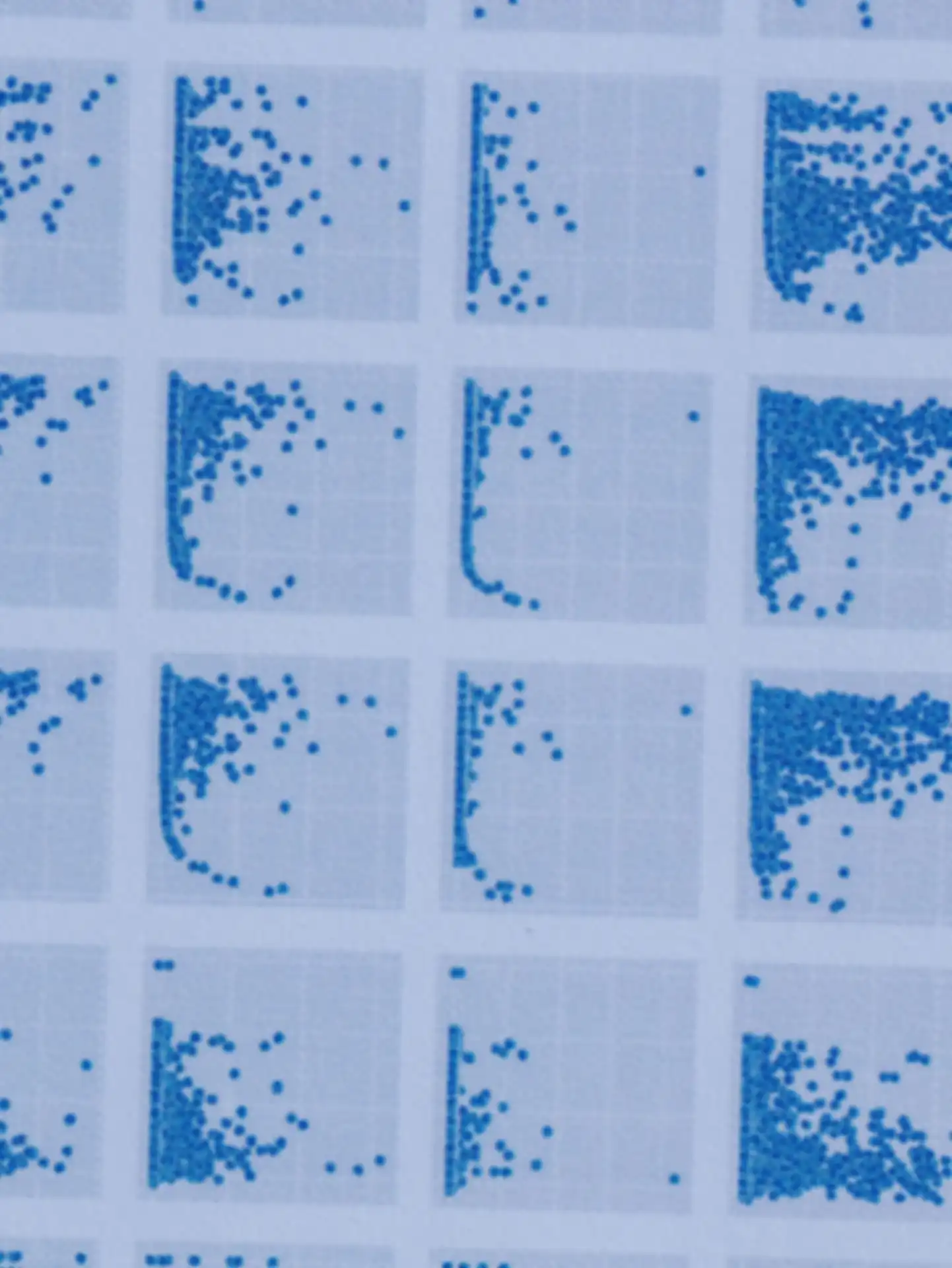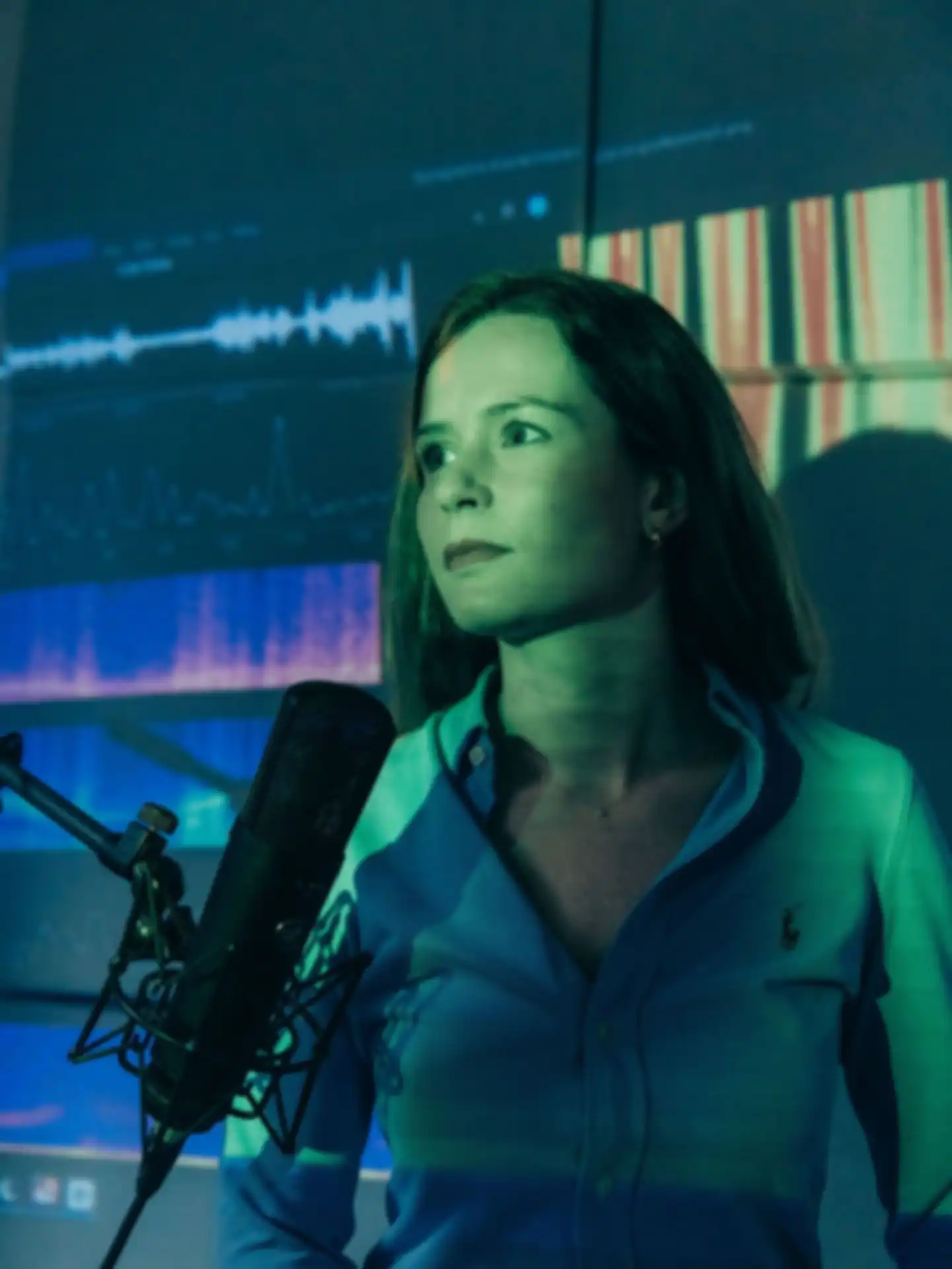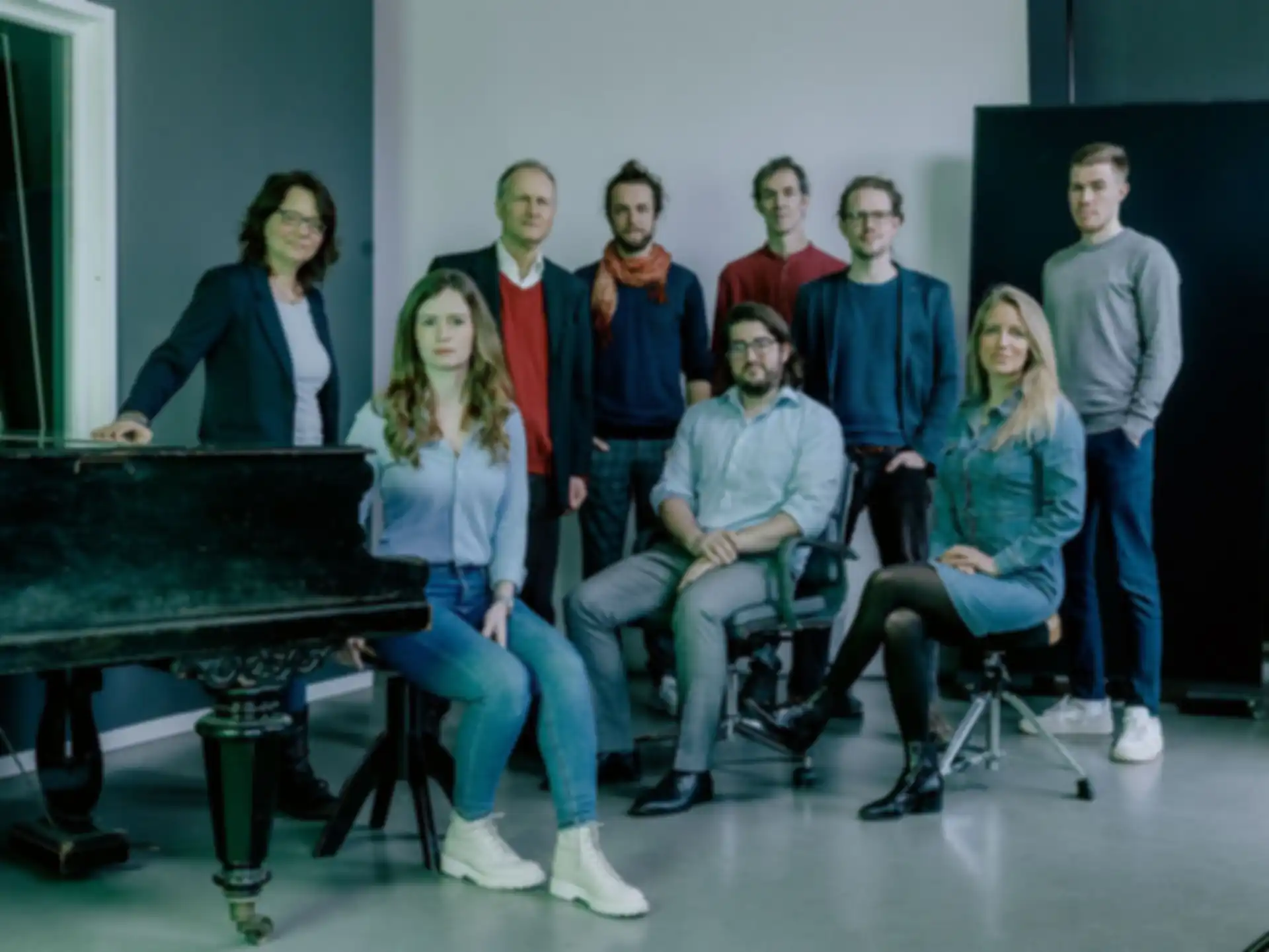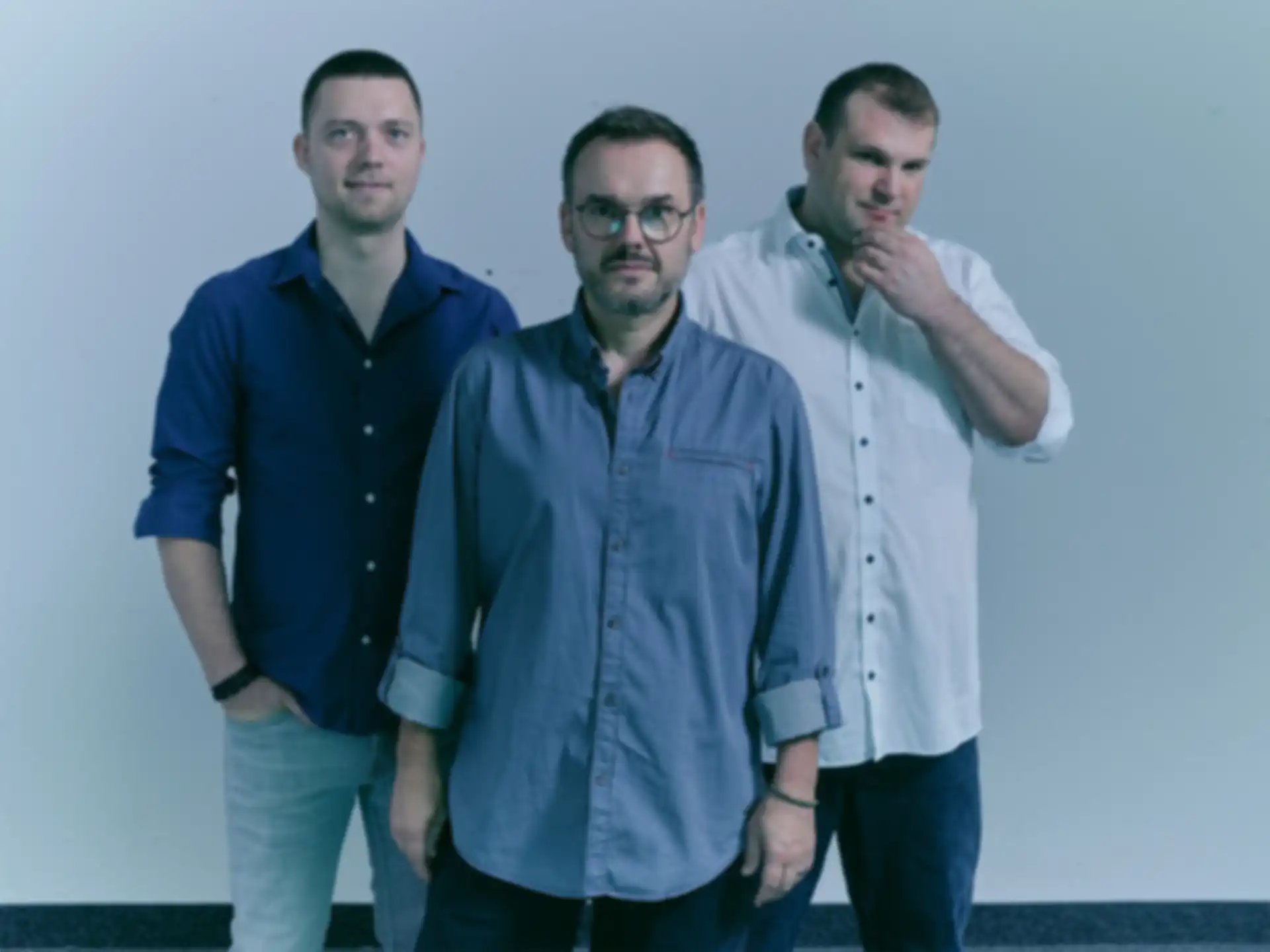Voice biomarkers
From Mozart to disease detection with ai-assisted voice analysis


The way we speak conveys much more than just words: Do we sound euphoric or subdued? Do we have a cold or are we hoarse? Is it a child or an elderly person speaking? Our brain is capable of recognizing all of this effortlessly in seconds just from the way someone speaks. Founded by Dr. Jörg Langner and Claudio Hasler, the start-up PeakProfiling analyzes precisely this – the how
of the voice, its music
so to speak – and goes one step further: It not only detects conditions recognizable to the human ear, but also much more complex phenomena, especially illnesses. With these so-called voice biomarkers
, the founders want to make a significant contribution to the (early) detection of illnesses.
Jörg Langner, who holds a doctorate in quantitative musicology and has been a researcher at the Humboldt University in Berlin for many years, devoted himself to musical phenomena decades ago and, among other things, asked himself the Mozart question
: Why is Mozart so fascinating? There are many other outstanding composers, but his music has always captivated people in a special way. I was looking for a mathematical solution to answer such complex musical questions,
recalls Langner.
Even before machine learning became a widespread topic, the passionate scientist and music fanatic realized that his research could also be projected onto singing and, ultimately, also speech. Langner subsequently devoted himself to researching the human voice in an industrial context: For over a decade, he conducted commercial contract research, including for DAX companies such as major German automotive groups. During this time, he dealt with a range of topics, including recognizing fatigue and emotions based on voices.
In 2017, he met Claudio Hasler, a former Google employee and high-ranking manager in the pharmaceutical industry at the time. Hasler saw enormous potential in this approach and joined forces with Langner. In 2018, they founded PeakProfiling GmbH. Other colleagues soon came on board, in particular experts in artificial intelligence, to combine Langner’s exceptional core technology with state-of-the-art AI processes.
To date, hundreds of medical studies have clearly shown that illness detection is fundamentally possible using voice recognition.
The topic of voice biomarkers has also attracted growing interest from universities. There are now almost 500 studies on voice biomarkers
on the PubMed medical portal alone. Voice biomarkers are particularly interesting because, compared to other digital biomarkers such as movement measurements, sleep tracking or pulse measurement, they have been proven to deliver high rates of accuracy for a wide range of diseases in the laboratory and at the same time are accessible to almost everyone thanks to their ease of use over the telephone. Hasler specifies, We see voice biomarkers as the spearhead of digital biomarkers, which will be supplemented by other markers in the future.
Despite the positive scientific validation, the leap from the laboratory
to a relevant application in medical practice is still pending. This is because things become much more complex when moving into practice – or as Hasler puts it, Reality is multi-layered and complicated. There are numerous influencing variables that come into play when you take the step from the laboratory into medical practice. Comorbidities, the influence of medication, different recording devices, varying microphone distances, different speech tasks, languages and dialects, good or bad days of the patients or background noise pollution are just some of the most important factors that need to be considered. Mastering this complexity is a long process that represents the biggest challenge.
With support from SPRIND, PeakProfiling worked together with Charité and the Jülich Research Center on voice analysis tasks to detect depression that come much closer to the complexity of medical practice. Corresponding publications are under way. Particularly in the area of depression, voice biomarkers have the potential to provide huge added value in the future. The provision of care for depression is notoriously strained even in Germany, not to mention less developed countries. The majority of people with symptoms have no diagnosis at all. Medical diagnosis is time-consuming and would be more accurate if it could be based on hard biomarkers. If treatment is initiated, close monitoring is crucial, but this is difficult to achieve due to limited resources. As a result, the majority of patients suffer a relapse. These are the points in the
patient journey” where the simple and regular measurement using voice biomarkers could provide valuable support for both patients and doctors.” PeakProfiling has come a long way. It expects to receive medical device status shortly, initially for ADHD, then for other diseases.


PeakProfiling’s ambition is to master this complexity and be the first to make the leap from the laboratory to a breakthrough in practice. The team believes that this calls for a unique technological approach that combines musicological findings with artificial intelligence in what PeakProfiling has termed Musicology AI
.
Hasler explains, We are in a field where very little training data is available. We estimate that 95% of academic studies work with N<100, in other words, less than 100 subjects. Conventional AI approaches can’t do much with this; they would need thousands or, even better, millions of data. The traditional approach is to specify which characteristics (
features”) in the signal should be examined for patterns using machine learning. The academic field uses a handful of toolboxes with the same, in our view limited, features. However, this approach is not yet able to solve the complex, practical problems in a way that can be generalized. In light of the success of generative AI, such as ChatGPT, there is also a trend towards pre-training models with large, non-medical data sets and then adapting them to our medical issues in the final step. This also harbors a lot of potential for a breakthrough.”
PeakProfiling pursues both approaches, but with one decisive difference: In simple terms, musical knowledge is used as input to support the AI in its search for patterns. Technically speaking, The classic ML approach involves using much more complex musicological features. In the field of generative AI, musical representations provide us with more efficient input.


In addition to specializing in individual illnesses such as depression, the software could also be used as a broad screening tool in the future. We believe that in the future, it will be possible to detect many illnesses early on through the voice. According to our current estimates, there are around 100 illnesses (500 ICD codes) for which voice biomarkers will be relevant. Scientific studies already cover a wide range of diseases, including neurological conditions such as Parkinson’s and Alzheimer’s, psychiatric illnesses such as depression or post-traumatic stress disorder, and respiratory diseases such as asthma or COPD, to name but a few,
explains Claudio Hasler.
The long-term expansion opportunities are therefore enormous. Of course this is bold, but in the long term we believe that our voice biomarkers have the potential to deliver added value for up to 100 illnesses. For example, if you look at the ten illnesses that cause the most deaths, seven of them can be recognized with certainty in the voice and two others with a high probability. This could potentially prevent 27 million deaths per year worldwide, and we want to contribute to making this happen.
But even here, the team wants to go further. When asked where such a development could lead, Hasler replies, At some point in the future, we will probably see the dawn of general sound AI in our field that goes far beyond medical applications. This technology will be able to analyze, interpret and generate every kind of sound in the world, whether the sound of people, machines, instruments or environmental noise. We are convinced that musical principles will ultimately play a key role in this.
More about the PeakProfiling GmbH: peakprofiling.com

What are voice biomarkers? Which diseases can be diagnosed with voice images? And when will AI-driven voice diagnosis systems be used in hospitals? Our host Thomas Ramge talks to Claudio Hasler, co-founder of the Berlin-based medtech start-up PeakProfiling.
Listen to the episode (in German).

